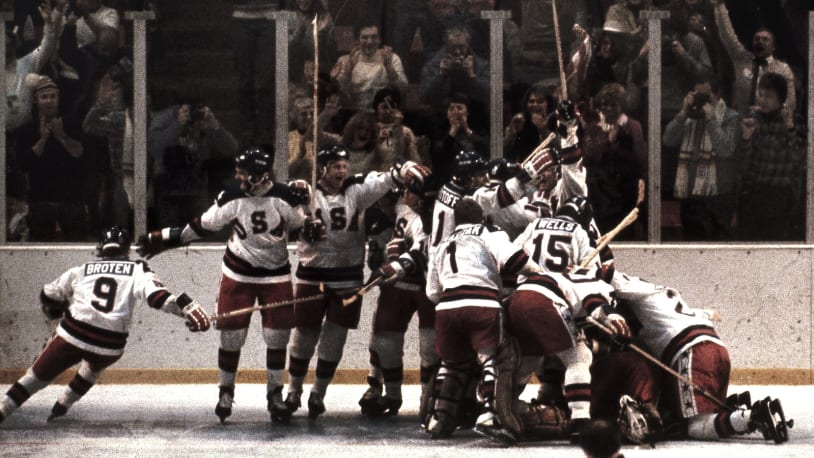
Will 2022 bring another Miracle on Ice?
The modern Olympics were conceived as a celebration of amateurism. In this idealistic vision, athletes from around the world would gather to compete on the basis of ability, commitment, and friendly rivalry — not because they were being paid.
It hasn’t worked that way. Since the 1970s, restrictions against participation by professionals have been steadily relaxed. The changes have been less dramatic in sports that can’t sustain commercial leagues, but in basketball, hockey, and a few other Olympic events, competition is dominated by international stars who earn millions for deploying their skills seasonally on behalf of valuable privately-owned franchises.
It was a breath of fresh air, then, when the USA Hockey organization announced its roster for the upcoming Winter Games this week. Because the NHL barred its players from participating due to COVID-related interruptions of the season, the U.S. team will be heavy on college players. For many fans, the young squad will recall the “Miracle on Ice” team of 1980, which defeated a heavily favored (and effectively professionalized) Soviet team before going on to win an improbable gold medal.
Residual Cold War enthusiasm isn’t the only reason that story sticks with us more than four decades later. The OIympics are at their best when they provide a fleeting but high-profile stage to athletes and events that otherwise receive little attention. It’s true that the meaning of amateurism has changed over the decades — as depicted in the film Chariots of Fire, competitors were initially discouraged from seeking the advice of coaches or even engaging in systematic training. But there’s still something thrilling about watching athletes who know they’ll never play for a living give everything they have for a few minutes, hours, or days of glory.
It’s too bad about the setting, though. As the Games have grown more expensive and disruptive to mount, the role of host has become most appealing to authoritarian regimes that hope to use them as a showcase for their economic and technological prowess. In 1980, it was a miracle for a team of amateurs to defeat the Soviets in the rink. In 2022, we’d need a very different kind of miracle to upset the hubris of the Chinese Communist Party.
The modern Olympics were conceived as a celebration of amateurism. In this idealistic vision, athletes from around the world would gather to compete on the basis of ability, commitment, and friendly rivalry — not because they were being paid. It hasn’t worked that way. Since the 1970s, restrictions against participation by professionals have been steadily…
The modern Olympics were conceived as a celebration of amateurism. In this idealistic vision, athletes from around the world would gather to compete on the basis of ability, commitment, and friendly rivalry — not because they were being paid. It hasn’t worked that way. Since the 1970s, restrictions against participation by professionals have been steadily…